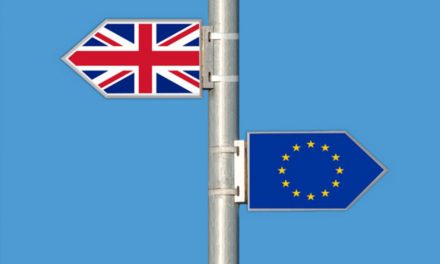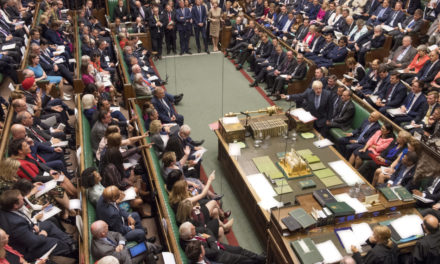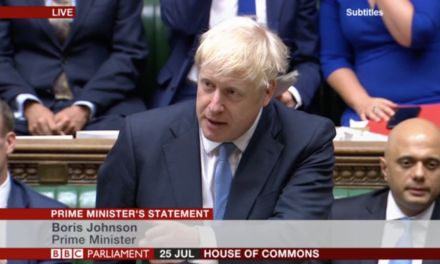The European Union (Withdrawal Agreement) Bill was further considered in Committee yesterday, during the debate Sir William Cash made the following interventions and speech:
The Chairman of Ways and Means (Sir Roger Gale): Good afternoon, ladies and gentlemen. We now embark on the second day of scrutiny of the withdrawal agreement Bill by a Committee of the whole House. I again gently remind hon. Members that Mr Speaker has determined that this is not a suitable vehicle for maiden speeches. Any colleagues wishing to make a maiden speech should consult the Table Office, which they will find most helpful.
(…)
Sir William Cash (Stone) (Con): When dealing with issues of interpretation of European law in the context of our own previous methods of judicial interpretation, those of us who are familiar with Maxwell as compared to Craies know what the differences are. Does my hon. Friend believe that we should be moving towards the stare decisis system—in other words, a system based on precedent—rather than to purposive interpretation, which is the basis on which European law currently operates? Professor Richard Ekins of Oxford University and others are very conscious of that. He has written a very interesting paper.
(…)
Sir William Cash: I wish to ask my hon. Friend to reflect on one point. Under this Bill, the European Scrutiny Committee, both in the Commons and the Lords, will have the power to examine certain matters. I know that he knows about that, but there is also the question of interpretation, which comes up in this set of proposals. I wish to reinforce the exchange that I had with my hon. Friend the Member for Bromley and Chislehurst (Sir Robert Neill), which is that clause 5 has not been addressed, and that reaffirms the supremacy of EU law before exit day. We need to keep an eye on the question of the quashing and disapplication of Acts of Parliament as we proceed.
Mr Walker: I absolutely take on board my hon. Friend’s comments. As we are discussing parliamentary scrutiny, I am sure that he will welcome the clauses that set out a role for the European Scrutiny Committee.
(…)
Thangam Debbonaire: Regulations that would have been discussed either in the European Parliament or the Council of Ministers, and those people are also elected and have been for decades. Members have been elected to the European Parliament since 1979. I know that, as I am sure Conservative Members do, because I have campaigned for those Members in elections.
Sir William Cash: The hon. Lady just referred to the Council of Ministers. Would she deny for a minute, as is well understood by everybody else, that decisions are taken in the Council of Ministers by a majority vote of other countries behind closed doors and without a transcript? They are therefore not democratic. How can she talk about people being elected when the decisions are actually taken in that manner?
Thangam Debbonaire: The last time I looked, most—although admittedly not all—the Government’s Ministers were democratically elected. We participated in the creation of the rules of that Council. I am going to skip ahead in my speech and then come back again, because I wish to remind Conservative Members that it was, for instance, a Tory Government who took us into the single market, with all its rules. They rightly recognised the benefits of the shared rules of a single market. They recognised that they were worth it and that they did not compromise our sovereignty.
(…)
Sir William Cash: A very simple example of what my hon. Friend mentions is the EU’s port services regulation, which was opposed by every trade union, by the Government and by every one of the 47 port employers but went through this House simply because it had been passed by a majority vote in the Council of Ministers. That regulation was imposed upon us by the abdication of our sovereignty under section 2 of the European Communities Act 1972.
James Duddridge: My hon. Friend is right. We could not do anything about that law or any other specific issue without coming out of the European Union, taking back control and asserting our sovereignty. Clause 38 reaffirms that sovereignty going forward and, crucially, during the implementation period.
(…)
Sir William Cash: In a nutshell, laws are democratic when they are made in line with a manifesto following a general election. The bottom line, therefore, is that decisions taken by the European Scrutiny Committee on vital national interests will also go through departmental Select Committees, and then there will be a vote on the Floor of the House. That means this House will decide whether it wants to obey a legislative arrangement that has come out of the European Union, which is completely different from anything that happened since 1972.
James Duddridge: I thank the Chair of the European Scrutiny Committee. As he knows, the powers will also extend to the House of Lords, allowing for an additional check.
(…)
Sir William Cash: The hon. Member for Bristol West (Thangam Debbonaire) said, “What is this sovereignty?” It is terribly simple; it is the ability to make our own laws in our own Parliament, in accordance with the electoral decisions taken by the people in line with a manifesto and with their constitutional arrangements, which have been in place for many generations. It is this for which people fought and died in world wars. The very simple reality is that sovereignty is about whether or not we can govern ourselves.
My rebellion against the Maastricht treaty was based on the simple proposition that that treaty created European government. In 1971, we entered into arrangements—then enacted through the European Communities Act 1972—on the basis of a White Paper that said we would never give up the veto under any circumstances, and furthermore that to do so would be not only against our own national interest, but contrary to the fabric of the European Community itself. Believe it or not, it was understood in Government circles at that time that the veto enabled us to retain the actuality and reality of the ability to make our own laws. Gradually, over the next 30 or 40 years, that veto was whittled away to extinction, and the processes that I have to deal with day in, day out in the European Scrutiny Committee—and have been doing so since I first went on the Committee in 1985—have demonstrated to me that, in fact, we have not been governing ourselves. That is why I entered into opposition to the Maastricht treaty and then to Nice, Amsterdam and ultimately Lisbon. The reality of what has been happening is that the individuals who sit on these green Benches have simply had their ability to make the laws that they are entitled to make on behalf of the people who vote for them reduced to rubble.
In return, we have been faced with an increasingly dysfunctional European Union that did not work in the interests of the British people, and that is why we got the result we did in the referendum. It was the people who voted. Interestingly, when the decision was taken to hold the referendum, it was decided by six to one in the House of Commons. We voluntarily agreed that we would abdicate our right as Members of Parliament and let the people of this country make that decision on their own behalf. All the resistance we have seen over the past three years from the Opposition Benches and from a number of our recalcitrant colleagues, many of whom are no longer in the House, was based on a complete failure to understand that the decisions that were taken in that referendum were authorised by Parliament and, indeed, by themselves.
Section 1 of the European Union (Withdrawal) Act 2018—I did the first draft of the Bill, which was accepted by the Government—said that the European Communities Act 1972 would be repealed on exit day. That is now in fact implementation period day, but for practical purposes it comes to the same thing. The Opposition religiously—or irreligiously, depending on how one cares to put it—decided that they would oppose that Bill in principle, as they did on Second Reading and on Third Reading. Every single Conservative, even my recalcitrant colleagues—even Kenneth Clarke—voted for the withdrawal Act on Third Reading, but the Opposition denied not only the sovereignty that was being restored by the repeal of the ’72 Act but the democracy that went with it. That is a fundamental issue. They destroyed their credibility with the British people, and I believe that the ordinary man in the street—the people who voted in the last general election—understood that.
I have already made the point that European laws are made behind closed doors by a majority vote. Nobody can say that the decisions that were taken, which we had to accept because we had no alternative, were laws made by our elected representatives. I have never heard such trash coming from a Front Bench as the suggestion that the fact that these people happen to be elected Members of Parliament in the Council of Ministers conferred upon them some form of democratic right to decide.
Sir Iain Duncan Smith: My hon. Friend is making absolutely the right case about sovereignty. I mentioned Van Gend en Loos and Costa v. ENEL. The point about those two cases is that they were judicial statements. One was about direct effect and the other was about the whole idea that European law had supremacy. They were never voted on in this House. Nobody agreed to them. Nobody said, “This is what we wanted.” That led to something quite interesting—the imposition of the extension of welfare payments to EU migrants who came here was the result of a judicial review of something that we had never voted for, and it cost us a lot of money.
Sir William Cash: That is a very good point. Those cases happened before we came into the European Union, and they invade the very concept of the constitutionality of this country and of other countries too, because they say that we are obliged to obey not just any law, not just all laws, but even constitutional laws. That is the point. It is an utter invasion. It is a complete and total destruction of the decision of people through the ballot box in general elections. That is the problem. Sovereignty and democracy are intertwined at the heart of our constitutional system. The hon. Member for Bristol West ought to reflect on the rather absurd propositions in her speech, because she cannot prove a single point that she made.
Mr Paterson: A key function of Members sent here—the earlier Parliaments were in Shropshire, of course; it is a regrettable tendency that we have had them in Westminster for the last few hundred years—is that we pass supply, vote funds and are responsible for moneys raised from our constituents. “No taxation without representation” is fundamental. The current rules are in complete breach of that. It is worth reading the National Audit Office report which says that between 2005 and 2015, the EU demanded £642 million back because of the unsatisfactory manner in which the last Labour Government introduced CAP reform. There was absolutely nothing that a single Member of Parliament could do by voting here to stop that money being demanded from the UK Government.
Sir William Cash: In conclusion, I will simply say that I entirely endorse what my right hon. Friend has said, as indeed I endorse what my right hon. Friend the Member for Chingford and Woodford Green (Sir Iain Duncan Smith) said. The bottom line is that our passing of the withdrawal Act, in conjunction with the general election that we have just won, gives us back the opportunity to make laws on behalf of the people of this country in a democratic, constitutional arrangement of such importance that I believe it will go down as a historic moment when the Bill’s Third Reading is passed tomorrow.




